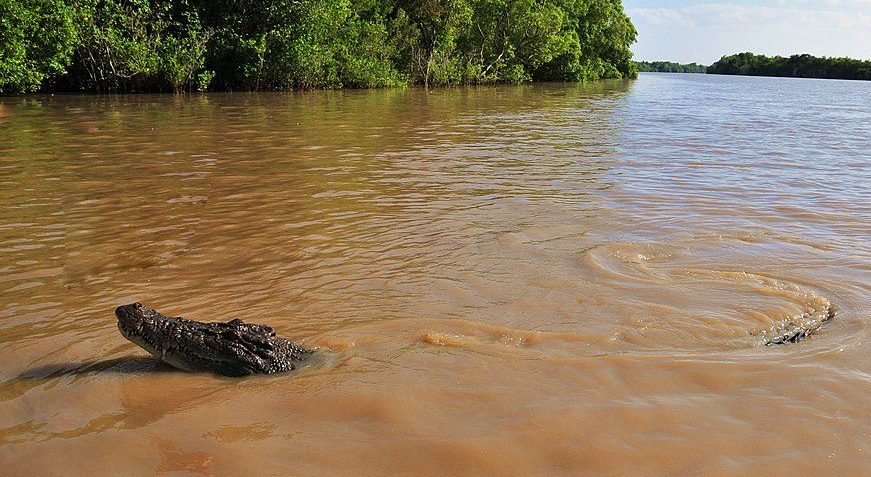The residents Burketown, which hosts a population of less than 250, have been warned to evacuate amid severe flood warnings – and sightings of saltwater crocodiles lurking in the floodwaters.
Nearly 100 people were airlifted from the region in evacuation efforts, but many residents elected to stay behind despite urgent warnings from local police.
Two large crocodiles were spotted amid the floodwater, a sign that many more were likely just below the surface.
Despite the hazardous conditions and croc sightings, some residents of Burketown have elected to stay behind.
Families evacuating the town were not able to bring their pets with them due to the limitations of the small helicopters.
Dan McKinley, chief executive of Burk Shire Council, spoke to the difficulties faced by evacuation teams.
“When you’re in a very small town, isolated by remote salt plains, you’re not able to take dogs out of town by car. There was no way dogs could fit on helicopters,” said McKinley.
“It was one of those scenarios where we had to act.”
A spokesperson from Queensland Police encouraged owners to make alternative arrangements for pets in the event of an emergency, but it seems clear that Burketown residents had few options.
Moungibi man and local Indigenous Ranger Mick Watson spoke to the situation in Burketown, stating that he was one of many who could not evacuate with his dog, Guruba.
“That’s the only reason why some of the people stay here – to ensure our pets’ safety, because they’re part of our family in our eyes,” he said.
“We just can’t leave them here to either be croc bait or starve to death,” he said.
However, animals weren’t the only reason some locals elected to stay behind.
Mr Watson also connection to the community and land as reasons some were staying, especially for the First Nations people of Burketown.
“Our people have been around this land for generations and have been through probably worse situations than what we are in now,” said Watson.
“The Elders of the community gave us the confidence to stay here … and they assured us that everything is going to be okay. That’s why a lot of us have stayed.”
With the water level slowly receiving, authorities hope to see residents return to their homes within two weeks, but the damage to housing and infrastructure is expected to be severe.






